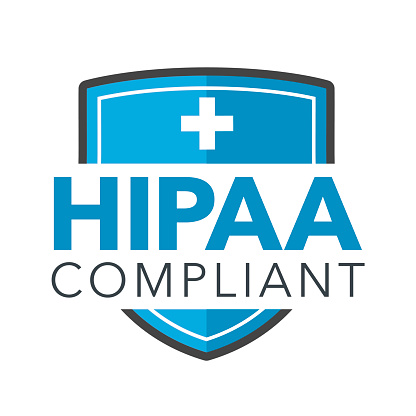To avoid comprising ePHI and being fined by the government, it’s important to make sure your business is compliant with all HIPAA regulations.

Since the Healthcare Insurance Portability and Accountability Act (HIPAA) was introduced in 1996, many different companies in the healthcare sector have struggled to become compliant with its privacy rules. In particular, the Security Rule of HIPAA requires any agency handling electronic protected health information (ePHI) to take special precautions to ensure that patients’ data is safe. If your business does not follow these rules, you could be faced with a hefty fine or other consequences. To avoid these detrimental punishments, follow these tips to ensure your business is HIPAA compliant.
1. Make Sure Your Transmissions Are Secure
The chances are good that your employees are always sending patient information back and forth between themselves, other healthcare offices, insurance companies, and more. To ensure this information is not easily stolen or seen by curious eyes, it is essential to use a secure server to store files as well as encryption when sending emails.
2. Set Up an Audit System
If there is a breach of information, it will be your job to pinpoint the leak and reprimand the associated parties. For this to happen, you will need to have a comprehensive audit system set up. Use a program or specialized hardware that records user logins, access times, and other pertinent activity so that you won’t be blamed if there’s an issue.
3. Give Each User a Unique ID
Because you will need to track each user’s activity, it’s vital to give each unique person their own username. This will make sure that only those employees that need to access ePHI are granted access. Additionally, you can verify each user’s activities to ensure they are following HIPAA compliance.
4. Have Plans for Emergency Access
New electronic records are convenient and lead to greater productivity. However, in the event of a power outage or disabled server, it’s important to still be able to access your patient files. Always have a backup plan for accessing ePHI during an emergency. Remember, patients always have a right to their ePHI, so by blocking their access to it, you could be breaking the law.
5. Train Your Employees
All of these preparations will be useless unless you provide proper training for your organization. Explain to your staff what the HIPAA act is, how to handle ePHI, and how to follow relevant state and federal laws. Because you are ultimately responsible for the actions of your staff, this training acts as a safeguard for the integrity of your business.
While these aren’t all of the tenets of the HIPAA act that an organization needs to follow, they are some of the main factors you should consider when investigating your compliance. If you’re in the New Jersey area and would like more help with HIPAA technology guidelines, simply contact eSOZO Computer and Network Services at (888) 376-9648 or info@esozo.com.
Author: Aaron White, Date: 20th January 2017




Follow eSOZO on Social Media